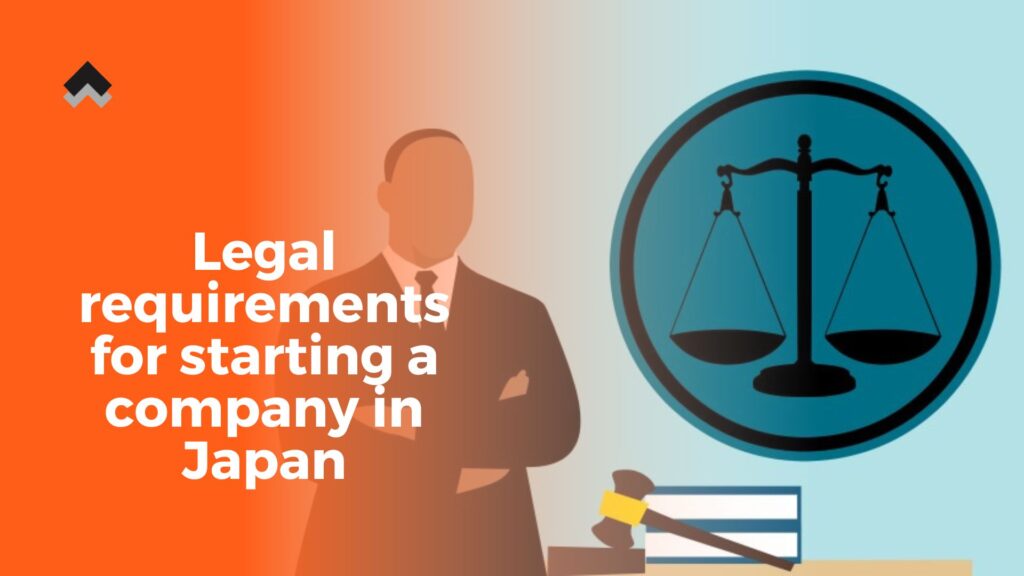A Complete Guide to the Cost of Setting Up a Company in Japan
Fueled by government initiatives and a growing focus on innovation, Japan’s business scene has seen remarkable changes. Investment in Japanese start-ups has significantly increased in recent years, reaching JP¥850 billion (equivalent to approximately US$6 billion) in 2023, solidifying Japan’s position as a major player in the global marketplace.
However, in the midst of the excitement of launching a new venture in this dynamic market, thorough planning is crucial for future success. Understanding the costs associated with company setup in Japan is an important first step towards achieving the desired results. These costs can encompass a range of factors, starting from government registration fees to initial capital investment. By understanding these financial requirements, entrepreneurs can make informed decisions, ensure financial viability, and launch smoothly and successfully in Japan.

Understanding your setup costs
Registration fees and process
The business structure you choose for your company will affect the tax that you’d have to pay in the future. Understanding the different types of company structures and their costs is important in determining which direction to move in. Here’s a list of the most common business structures that can help you find the most suitable one for you:
個人事業 – Kojin Jigyo (sole proprietorship)
Kojin Jigyo, or “personal business”, is a good option for those who want to manage and operate their business alone. Unlike a corporation (KK or GK), a sole proprietorship has a simplified registration process, smaller running costs, and fewer taxes. This makes it an attractive choice for freelancers, consultants, and those looking to start a small business, as it provides more flexibility for foreign entrepreneurs in Japan.
However, it’s important to remember that you will hold full responsibility for your business’s finances and liabilities, as sole proprietorship in Japan considers the owner and their business the same entity. Therefore, if your business experiences financial difficulties, it can put your personal assets at high risk.
Registration fee: none
株式会社 – Kabushiki Kaisha (KK)
Kabushiki Kaisha, or “joint-stock company”, is one of the top choices for entrepreneurs seeking a more established business structure in Japan. Unlike a Kojin Jigyo (sole proprietorship), a KK offers limited liability, so it protects the owner’s personal assets from business debts. This structure allows for raising capital through the sale of shares, facilitating growth and attracting investors, as it’s generally considered more prestigious among Japanese customers and, therefore, has more credibility. While KKs come with stricter regulations and higher initial setup costs, they offer greater credibility and flexibility for ambitious ventures in the Japanese market.
Depending on your capital, the fees are subject to change. Below are the numbers for a registration fee (capital under 21M) of a theoretical company:
Entity setup
- Attestation of Articles of Incorporation (定款 / Teikan Ninshō Shomeishō): JP¥52,000
- Registration Fee Revenue Stamp(登録免許税 / Tōroku Menkyo Zei): JP¥150,000
- Creating company stamp / copies / transportation / postage: JP¥20,000
- (optional) Revenue stamp for the Articles of Incorporation (free if digital): JP¥40,000
- Note that it is extremely difficult even for foreigners who speak Japanese to do the online articles of incorporation. Below we list the prices of third party support for the incorporation process and normally they can do it online, thereby saving 40,000 yen.
Entity setup support from a third party for K.K
Please note the below estimates do not include the government fees listed above.
- Low End : this can range from around 110,000 yen for a Japanese provider who is serving someone with Japanese citizenship or permanent residence. This normally increases to around 165,000 – 200,000 yen for those coming from overseas or need additional help with visa, etc. Our Rocket Start service can help those who do not need a business manager visa. We also have a partner who can help with K.K incorporation and business manager visa and charges low end prices with full English support and they have successfully incorporated companies we have referred them. Reach out to us in either case!
- Medium End : this can range from around 300,000 – 400,000 yen. These services would be in English and they would also help with back office management. Example, great for someone who does not plan to be in Japan and just needs someone to run everything. Please feel to reach out to us and we can introduce some medium-tier firms.
合同会社 – Godou Kaisha (GK)
Godo Kaisha, or “Limited Liability Company (LLC)”, is a relatively new and attractive business option in Japan. First introduced in 2006, it offers a middle ground between the simplicity of a sole proprietorship and the structure of Kabushiki Kaisha. Just like KK, it provides limited liability for its owners. However, GK has a simpler setup process with smaller registration costs, and offers more flexibility in internal management compared to a KK. This makes it a popular choice for start-ups and businesses with fewer regulations needing to be met. It’s important to note that, unlike a KK, profits in a GK are taxed at the corporate level before being distributed to members.
Depending on your capital, the fees are subject to change. Below are the numbers for a registration fee (capital under 21M) of a theoretical company:
Entity setup
- Registration Fee Revenue Stamp(登録免許税 / Tōroku Menkyo Zei): JP¥60,000
- Creating company stamp / copies / transportation / postage: JP¥20,000
- (optional) Revenue stamp for the Articles of Incorporation (free if digital): JP¥40,000
Entity setup support from a third party for G.K.
Please note the below estimates do not include the government fees listed above. Also, the fees for G.K. are typically lower not just for the entity setup but the incorporation support from third parties.
- Low End : this can range from around 77,000 yen for a Japanese provider who is serving someone with Japanese citizenship or permanent residence. This normally increases to around 110,000 – 165,000 yen for those coming from overseas or need additional help with visa, etc. Our Rocket Start service can help those who do not need a business manager visa. We can also introduce a partner who can help with G.K. incorporation and business manager visa with full English support. Reach out to us in either case!
- Medium End : this can range from around 300,000 – 400,000 yen and is similar to the costs of a K.K. These services would be in English and they would also help with back office management. Example, great for someone who does not plan to be in Japan and just needs someone to run everything. Please feel to reach out to us and we can introduce some medium-tier firms.
Below is the summary of the initial costs you’ll encounter when registering your company with 3rd party support:
| Business structure | Registration cost |
| Sole proprietorship | JP¥ 55,000 – 110,000 |
| Kabushiki Kaisha (KK) | ~ JP¥332,000 – JP¥550,000 |
| Goudou Kaisha (GK) | ~ JP¥137,000 – JP¥410,000 |
Although sole proprietorship isn’t technically a company, it’s an attractive option for those who want to run a business by themselves and receive the income directly onto their bank account. If you’re looking to create separate assets and have your business run independently, with multiple shareholders, or alone, then starting a company would be advised. How to Start a Business in Japan can help you choose the best option for you and guide you through the process of setting up your business.
Incorporation can be challenging, particularly if you’re handling the notarization process independently. If not done correctly, this process can take over two months and cost tens of thousands of yen. At Launch Lab, we provide comprehensive incorporation support with the help of a scrivener who has assisted in the incorporation of over 300 companies in Japan. Book a free consultation with us today, and let us help you streamline your incorporation journey.
Are there any minimum capital requirements?
The simple answer is not really. If you are a resident of Japan or hold a permanent residence visa, there is no minimum capital requirement to start your business in Japan. However, if you want to apply for an “Investor” or “Business Manager” working visa, you’ll need to invest at least JP¥5 million into capital. Here’s an article on How to Get A Business Manager Visa to guide you through the application process!
To pass the assessment of your financial application and smooth the process of opening a corporate bank account, it’s advised to invest at least JP¥1 million to show that you’re serious about opening your business in Japan. Bear in mind that a company with a capital higher than JP¥10 million will be subject to consumption tax in its first fiscal year and those with JP¥21 million in initial capital will have to pay higher incorporation fees to a scrivener.
Professional services you should consider
Don’t underestimate the value of professional services when setting up your company in Japan. For example, lawyers and accountants can navigate legal complexities and mitigate risks, saving you time, money, and potential headaches in the long run. Considering the costs of professional services can provide a better estimate of business launch expenses and mitigate the potential risks your business might encounter. Here are the experts whose help you might want to consider:
All in One Agency
These agencies can handle everything you need for the incorporation process. Even creating a bank account, serving as temporary director, office space, and everything you need after incorporation like stamp management, accounting, payroll, etc.
The average yearly engagement fee would typically be more than JP¥1.5 million on the low end and for just incorporation, around JP¥410,000 – ¥550,000.
Judicial scrivener
Administrative scriveners can help you prepare the necessary documents for company establishment and obtain licenses and permits on your behalf. However, they cannot handle the registration of incorporation, so you’ll need to apply for the registration yourself.
The average administrative scrivener fee for a company’s formation is approximately JP¥77,000 – JP¥200,000.
Tax accountant
Hiring a tax accountant can prepare and submit tax-related documents after the company is established.
The average tax accountant fee for a company’s formation is approximately JP¥30,000 – JP¥50,000.
Note that fees are subject to change, so make sure to do thorough research and book consultations with the firms whose services suit your budget and needs.
Operational costs
Things to consider when setting up the office
One of the initial legal requirements for setting up your company in Japan is to have an office space. There are multiple renting options available that you can choose from depending on your budget:
- Virtual office: around JP¥1,000 – JP¥10,000 (excluding additional costs such as mail forwarding services)
- Shared office: around JP¥20,000 – JP¥70,000
- Private office: from JP¥60,000
*This list doesn’t include short-term (serviced office spaces) and long-term rents, which are best found through real estate agencies. Scaling Your Company’s detailed guide will help you find the best option for you.
Remember that if you hold a “Business Manager” or “Investor” working visa, you’re required to have a physical office space for your company. If a visa is not needed, you can incorporate your company using your home address.
In addition to the office space, you will need a corporate phone number which would cost you around JP¥2,700 – JP¥6,500, and around JP¥9,800 for the mailing forward services like MailMate if you decide to set up a virtual office.

Permits and licenses
In Japan, the specific licenses and permits required to do business depend on your industry and business activities. However, there are some general categories to consider:
1. Business License
This is the initial license granted after registering your company. It provides basic authorization to operate in Japan.
2. Industry-Specific Licenses
Many industries require additional licenses to operate. These can include:
- Construction: for construction work exceeding a certain limit
- Food Service: for handling and serving food
- Real Estate: for acting as a broker for buildings and land
- Medical Services: licenses for specific medical practices
- Financial Services: licenses for banking, securities, or insurance activities
Be aware that obtaining an industry-specific license can take up to 2-3 months, so it’s advised to apply in advance to ensure that your business operates legally under the government’s supervision. The Ministry of Economy, Trade and Industry (METI) can help you determine the specific licenses and permits your business might need.
It’s always recommended to consult with a lawyer or business advisor specializing in Japanese industries to get the most accurate and up-to-date information on licensing requirements for your specific business.
3. Residence and Work Permit
If you’re a foreigner looking to start a business in Japan, you’ll need an appropriate visa and work permit to reside and work in the country. There are two types of work visas in Japan:
- Single-entry (JP¥3,000)
- Multiple-entry (JP¥6,000)
One of the main requirements for an application is to have the Certificate of Eligibility prepared. You can find more information by contacting your local Japanese Embassy, which can be found through the Ministry of Foreign Affairs of Japan website.
Initial operating costs
There are a couple of things to consider when calculating the initial operating costs, such as office space, utilities, marketing and branding, and more. Here’s a basic checklist of possible initial operating costs for your reference:
- Office space
- Supplies and furniture
- Equipment
- Utilities
- Marketing and branding
- Professional services
- Website development
- Insurance
- Taxes
- Payroll
Depending on your company’s size, industry, and goals, the prices for each of these categories will differ. Make sure to do your research before planning your budget. When you have just started your business, prioritize the essential expenses, and make sure to utilize free resources when possible.
Top 3 Ways to Reduce Your Start-Up Costs
1. Use shared office spaces
While shared spaces are generally cheaper to lease than traditional offices, they also reduce other costs, such as furniture, amenities, and services, as they are often included in the rental price.
2. Reduce labor cost
Remember that a lot of labor work can be automated, so be strategic about your task allocation to avoid high labor costs. If you can do something yourself, try to avoid paying someone else to do it for you. This will be a good learning experience and will also help you reduce labor costs. Consider hiring part-time or contract personnel, and prioritize the well-being of your team.
3. Bootstrap your business
“Bootstrapping” refers to using your own funds and resources to finance your business. This approach forces you to be resourceful and make wise financial decisions. While it might take longer to grow and expand your business, it allows you to retain full ownership and control over it.
Launching your company in Japan
While the initial costs of setting up a company in Japan might seem daunting, remember that they represent an investment in your business’s future success. Consulting with lawyers, accountants, and business advisors can provide invaluable guidance and cost-saving strategies. With careful planning, thorough research, and a strategic approach, you can navigate the setup process efficiently and focus on your company’s growth from the very beginning.



